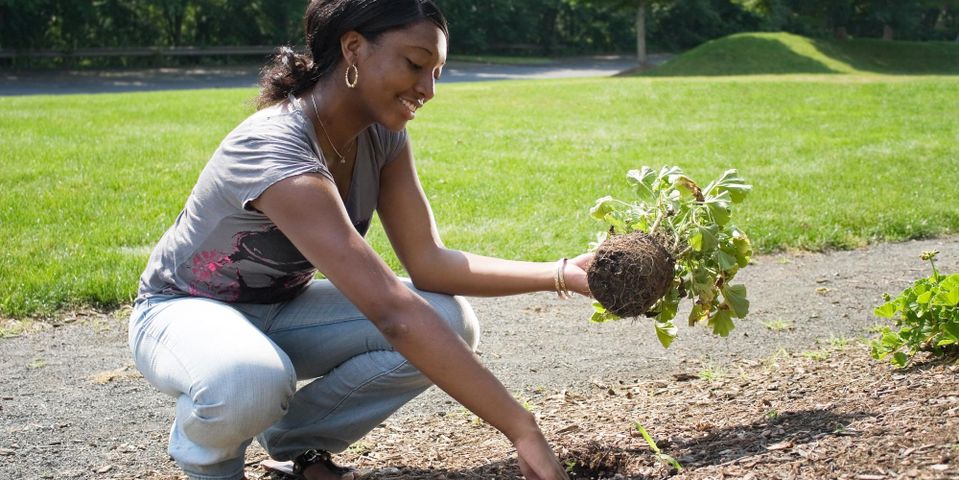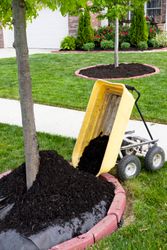
If you have flowerbeds or vegetable gardens, mulching can protect your plants in a number of ways. Mulch can help fortify your soil and vegetation with nutrients and protect it from various weather conditions. The following guide explains why mulch is an essential gardening tool for summer.
How Is Mulching Beneficial for Your Garden?
1. Retain Water
Using just two layers of mulch helps retain moisture, which can be critical to garden plants during periods of drought. If you see your plant wilting, and spot dry leaf tips, dead leaves, or slow growth, the plants might not be getting enough water.
2. Stop Soil Erosion
If you don’t use a protective layer over your gardening soil, the rain will gradually wash it away. High winds can also knock the soil out of place. Mulching helps keep soil particles in place and tempers the mud.
3. Prevent Soil Splashing
Soil-borne diseases can spread between specimens across your garden, and this is particularly common during heavy rainfall. When a raindrop hits bare soil, the water will splash and collect in areas with lower elevation. As the water spreads across the soil surface, it can also redistribute bacteria, viruses, and fungi, possibly causing infections in the nearby plants. Because mulch retains moisture and controls how it spreads, it can abate the spread of disease.
4. Regulate Temperature
 If some plants get direct sunlight, they can scorch, especially if it’s a hot summer day. Light-colored mulch can help you avoid this problem because it blocks sunlight from reaching the soil, which will help keep the plant cool. The additional moisture barrier also helps regulate the plant’s temperature.
If some plants get direct sunlight, they can scorch, especially if it’s a hot summer day. Light-colored mulch can help you avoid this problem because it blocks sunlight from reaching the soil, which will help keep the plant cool. The additional moisture barrier also helps regulate the plant’s temperature.
5. Provide Nutrients
If you use organic mulch, like wood chips, the material will break down gradually and provide nutrients for your plants, like potassium, phosphorus, and magnesium. Mulching helps feed your plants between fertilizer applications.
6. Enhance Soil Structure
Wood chips add structure to the soil as they decompose, which means the ground will be less susceptible to wind erosion and runoff. This is particularly important for properties with uneven surfaces or slopes.
7. Support Aeration
Soil compacts over time, and this is especially true in dry environments. As a result, the land will become denser and less fertile. Water won’t infiltrate and drain well through the soil, which also means your plants won’t receive the nutrients they need to grow. Mulching helps the soil stay porous, and the material attracts worms. The worms naturally keep the dirt aerated by crawling through it.
8. Control Weeds
Mulch inhibits seed germination, which means you’re less likely to see weeds sprouting. By creating an inhospitable environment for weeds, you’ll cut down on yard maintenance and limit your reliance on herbicides.
When you’re ready to mulch your property in Beavercreek, OH, Hoffman Turf can help. Early summer or late spring is the ideal time for mulching, and you can make your appointment in advance to secure service during the busy season. To learn more about this company, visit their website. To schedule lawn maintenance, mulching, or landscaping services, call (937) 260-9715 today.
About the Business
Have a question? Ask the experts!
Send your question

